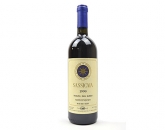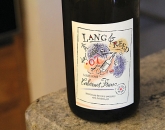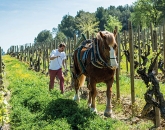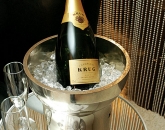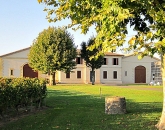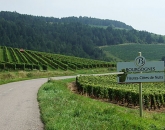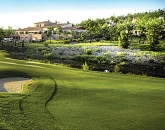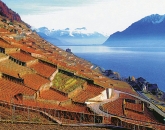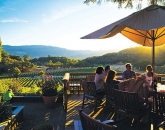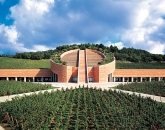For both port and non-fortified red wines Touriga Nacional is the Douro’s signature grape, but Niepoort believes that cultivating different grape varieties together in the same vineyard produces an extra dimension in the wines, absent from single varietal plantings. The practice is a traditional one in the Douro Valley.
So is crushing grapes by the old fashioned treading method, using shallow tanks which in Portugal are called "lageres". Around 60 per cent of Niepoort’s grapes are still crushed this way.
The house’s white wines have both acidity and minerality with attractive fresh fruit aromas, and are altogether more serious whites than most people would expect from Portugal - fine examples of the new generation of Douro wines.
The reds are elegant and peppery, with fine, well resolved tannins, and a silkiness that recalls their fortified cousins, but at much lower levels of alcohol.
In 2003 Niepoort was among the founder members of an informal alliance of high quality Douro wine producers, which also includes Quinta Do Vallado, Quinta Do Vale D Maria, Quinta Do Vale Meao, and Quinta Do Crasto. Collectively they call themselves, lightheartedly, "The Douro Boys" and their wines (and ports) are available in both Hong Kong and Macau.
Other names to look out for among leading producers of non-fortified Douro reds include Barca Velha and Quinta do Cotto.
Alentejo has also emerged as a producer of both reds and whites of increasingly high quality, the latter often blends dominated by the Antao Vaz grape.
It is no longer necessary to go to Macau to source Portuguese wines, although you won’t find many on the shelves at Watson’s Wine Cellar. Importers in Hong Kong include Adega Royale (www.adegaroyale.com) and Global Wine Cellar (www.gwcellar.com).
Most Portuguese wines, particularly the reds, taste best with food, and unsurprisingly it tends to be Portuguese or Macanese restaurants that have the most extensive lists.
Again you don’t have to go to Macau, although there is much to be said for doing so. There is a good list at the Casa Lisboa Portuguese Restaurant and Bar on the eighth floor of the Lan Kwai Fong Tower in Central, with a particularly strong representation from the Douro.
If you are going to Macau, however, there are a number of restaurants with strong Portuguese wine lists. These include The Clube Militar (www.clubemilitardemacau.net), which is among the more moderately priced of the town’s Portuguese restaurants, the pricier Litoral (www.restaurante-litoral.com) and the more rustic and unfailingly friendly Antonio on Taipa (www.antoniomacau.com).
Pages
Click here to see the published article.


